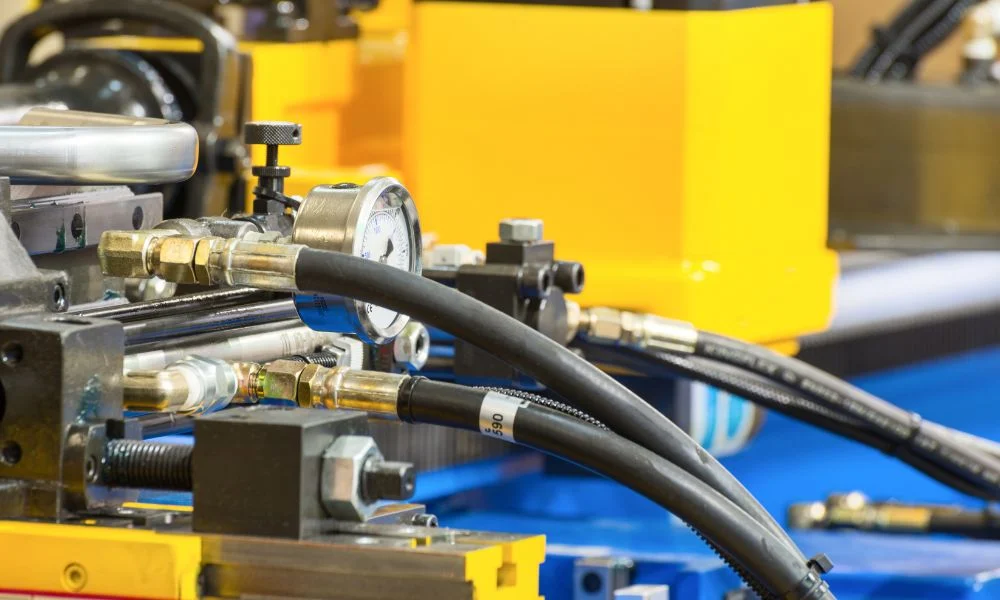אוג . 07, 2024 14:55 Back to list
Understanding CE Certification for OEM and OBM Hydraulic Hoses in the Industry
CE Certification for OEM and OBM Hydraulic Hoses Understanding Standards and Implications
In an era where global trade and compliance standards dictate market dynamics, the significance of CE certification cannot be overstated, especially in the production of hydraulic hoses. For manufacturers operating in the fields of Original Equipment Manufacturing (OEM) and Original Brand Manufacturing (OBM), understanding the intricacies of CE certification is vital for ensuring product safety, quality, and market access.
What is CE Certification?
CE marking, derived from the French phrase Conformité Européenne, signifies that a product adheres to European Union (EU) safety, health, and environmental protection standards. For hydraulic hoses, which are critical components in various industrial and automotive applications, meeting these standards is crucial. The certification not only assures consumers of product safety but also opens the door to European markets, where regulatory compliance is often mandatory.
The Importance of Hydraulic Hoses in OEM and OBM
Hydraulic hoses are essential for transmitting power and controlling machinery across numerous sectors, including manufacturing, construction, and agriculture. In OEM contexts, hydraulic hoses are often components of larger systems, necessitating rigorous testing and quality assurance to meet the specific requirements of original equipment producers. Conversely, OBM manufacturers brand and sell finished hydraulic hoses to end-users, where brand reputation hinges on quality and safety.
For both OEM and OBM manufacturers, CE certification acts as a quality guarantee. It signals to customers that the products they purchase are manufactured to a high standard, reducing the likelihood of failures that could lead to accidents or production downtime.
The Path to CE Certification
Achieving CE certification for hydraulic hoses involves several critical steps
ce certification oem and obm hydraulic hose

1. Understanding Applicable Directives It’s essential for manufacturers to be aware of the specific EU directives and regulations applicable to hydraulic hoses. These may include standards for pressure resistance, temperature compatibility, and environmental safety.
2. Testing and Compliance Manufacturers must conduct a series of tests to ensure their hoses meet the necessary performance and safety criteria. This often involves third-party testing by certified laboratories, where the hoses are subjected to various stress tests to validate their durability and safety.
3. Technical Documentation Comprehensive documentation is required as evidence of compliance. This includes design drawings, test reports, and a declaration of conformity, which must be kept available for inspection.
4. Continuous Improvement CE certification is not a one-time task; it implies a commitment to ongoing quality assurance and improvements. Manufacturers should regularly review their processes and adapt to new regulations or advancements in technology.
Market Benefits of CE Certification
For OEM and OBM manufacturers, gaining CE certification goes beyond compliance. It often results in enhanced marketability and access to a broader customer base. In the competitive hydraulic hose market, products that carry the CE mark are more likely to be favored by customers seeking reliable and safe options.
Moreover, CE certification can help in establishing partnerships with other businesses, particularly in the EU, where compliance is a major factor in procurement processes. It may also lead to reduced liability risks, as certified products are less likely to encounter legal challenges regarding safety issues.
Conclusion
CE certification for OEM and OBM hydraulic hoses is more than a regulatory requirement; it is a testament to quality, safety, and reliability. As the market continues to evolve with technological advancements and heightened safety expectations, manufacturers must prioritize compliance to not only meet legal obligations but also to build trust and foster long-term relationships with customers. In this competitive landscape, CE certification will remain a vital aspect of product development and market strategy for hydraulic hose manufacturers.
-
Best Four Steel Wire Spiral Hose Hydraulic R12 – Durable High-Pressure Hose Manufacturer
NewsJul.08,2025
-
High-Quality 1/4 Hydraulic Hose – Soft, Flexible & Durable Rubber Hoses for Industrial Use
NewsJul.08,2025
-
1 1 2 Inch Hydraulic Flexible Hose - Durable, Reliable, High-Pressure Solutions
NewsJul.07,2025
-
High-Quality 1 2 Rubber Hose - Durable, Flexible Hydraulic Solutions
NewsJul.07,2025
-
Discover SAE Hydraulic Hose Types - High Quality & Durable Hoses from Leading Factory Supplier
NewsJul.06,2025
-
High Pressure Wire Hydraulic Rubber Hose Supplier Durable & Reliable 1SN Hose Solutions
NewsJul.06,2025
